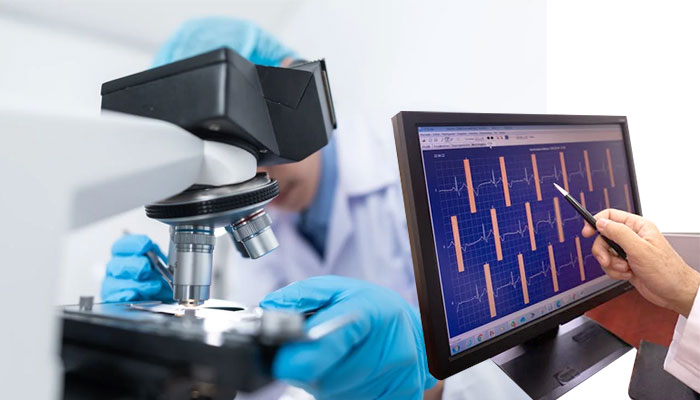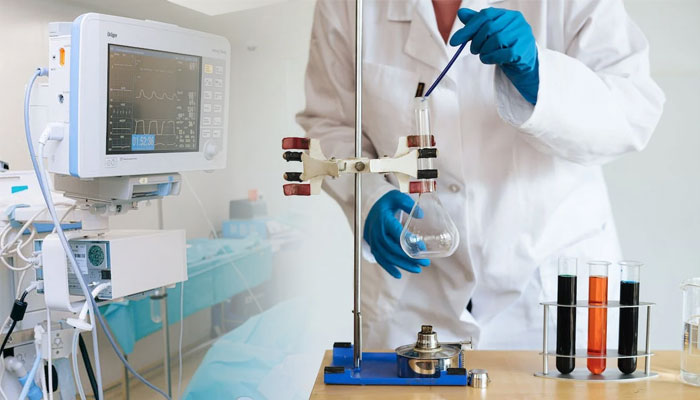Heart health is a matter of utmost importance, and staying informed about the various tools and tests available to assess it is crucial. Among these tools, cardiac enzyme tests play a vital role in diagnosing heart conditions. In this article, we will delve into the world of cardiac enzyme tests, exploring their significance, types, procedures, and much more.
When it comes to heart health, early detection and accurate diagnosis are key. Cardiac enzyme tests, also known as cardiac enzyme blood tests, are an essential part of the diagnostic process. These tests help in identifying and assessing heart conditions by measuring specific enzymes released by the heart muscle when it is damaged.
Table of Contents
What are Cardiac Enzyme Tests?
Cardiac enzyme tests are blood tests that measure the levels of specific enzymes in the bloodstream. These enzymes are released into the blood when the heart muscle sustains damage, often due to a heart attack or other cardiac issues. The primary enzymes measured in these tests are creatine kinase (CK), creatine kinase-MB (CK-MB), and troponin.

Why Are Cardiac Enzyme Tests Important for Heart Health?
Cardiac enzyme tests are critical for several reasons. They help medical professionals determine whether a patient has had a heart attack, assess the extent of heart muscle damage, and monitor treatment effectiveness. These tests are an essential tool in the early diagnosis and management of heart conditions, potentially saving lives.
Types of Cardiac Enzymes
There are various cardiac enzymes, but the most commonly measured ones include CK, CK-MB, and troponin. Each of these enzymes serves a unique role in diagnosing and assessing heart damage. CK is a general marker of muscle damage, while CK-MB is more specific to heart muscles. Troponin is considered one of the most sensitive and specific markers for cardiac injury.
When Are Cardiac Enzyme Tests Ordered?
Cardiac enzyme tests are typically ordered in cases where a heart attack is suspected. Symptoms like chest pain, shortness of breath, and discomfort in the chest area may prompt a healthcare provider to order these tests. Additionally, cardiac enzyme tests can be part of routine cardiac assessments for individuals with risk factors.
How Are Cardiac Enzyme Tests Performed?
Cardiac enzyme tests involve a simple blood draw, usually from a vein in the arm. The blood sample is then sent to a laboratory for analysis. Results are typically available within a few hours to a day, allowing for quick assessment and decision-making.

Understanding Cardiac Enzyme Test Results
Interpreting cardiac enzyme test results requires knowledge of the specific markers being measured. Elevated levels of CK-MB or troponin can indicate heart muscle damage, which is often seen in a heart attack. These results guide healthcare providers in making timely and accurate diagnoses.
Cardiac Enzyme Tests vs. Other Heart Health Assessments
While cardiac enzyme tests are valuable, they are not the only tool for assessing heart health. Other tests, such as electrocardiograms (ECGs or EKGs), stress tests, and imaging studies, also play crucial roles in comprehensive heart evaluations. The choice of tests depends on the patient’s symptoms and risk factors.
Interpretation of Cardiac Enzyme Test Results
Interpreting cardiac enzyme test results requires a thorough understanding of the patient’s clinical context. Elevated enzyme levels may indicate heart damage, but they do not provide information about the underlying cause. Further diagnostic tests and evaluation are often needed to determine the precise nature of the heart condition.

Factors Affecting Cardiac Enzyme Test Results
Several factors can influence cardiac enzyme test results, including the timing of the test after the onset of symptoms, pre-existing health conditions, and medications being taken. Healthcare providers take these factors into account when assessing results.
Cardiac Enzyme Tests and Heart Attack Diagnosis
Cardiac enzyme tests are particularly useful in diagnosing heart attacks. Elevated troponin levels, in particular, are strongly indicative of a heart attack. A series of tests may be performed to monitor changes in enzyme levels, helping healthcare providers confirm the diagnosis.
Cardiac Enzyme Tests and Other Heart Conditions
Apart from heart attacks, cardiac enzyme tests can also be informative in diagnosing other heart conditions, such as heart failure and myocarditis. The specific enzymes measured and the context in which the tests are used vary depending on the suspected condition.
Preparing for a Cardiac Enzyme Test
Patients preparing for a cardiac enzyme test are typically advised to fast for a few hours before the test. It’s essential to follow your healthcare provider’s instructions to ensure accurate results. Inform them of any medications you are taking, as certain drugs can affect test results.

The Role of Cardiac Enzyme Tests in Preventive Cardiology
While cardiac enzyme tests are often associated with diagnosing heart conditions, they can also play a role in preventive cardiology. By identifying individuals at risk for heart disease, these tests contribute to early intervention and lifestyle modifications that can improve heart health.
Conclusion
Cardiac enzyme tests are invaluable tools in the realm of heart health. They aid in diagnosing heart conditions promptly, allowing for timely treatment and improved outcomes. By understanding the significance of these tests and their role in heart health, individuals can take proactive steps to maintain a healthy heart.
Frequently Asked Questions (FAQs)
- What are cardiac enzyme tests, and why are they important for heart health?
Cardiac enzyme tests are blood tests that measure the levels of specific enzymes in the bloodstream, including creatine kinase (CK), creatine kinase-MB (CK-MB), and troponin. These enzymes are released into the blood when the heart muscle is damaged, often due to a heart attack or other cardiac issues. These tests are important for heart health because they help in diagnosing heart conditions, such as heart attacks, and assessing the extent of heart muscle damage. Early detection through these tests is crucial for prompt treatment and better outcomes.
- How do cardiac enzyme tests differ from other heart health assessments like EKGs?
Cardiac enzyme tests and electrocardiograms (EKGs or ECGs) serve different purposes. Cardiac enzyme tests measure specific enzymes released during heart muscle damage, providing information about the extent of damage. In contrast, EKGs record the electrical activity of the heart, helping identify irregularities in heart rhythm or other cardiac issues. Both tests are valuable but offer different insights into heart health. In many cases, they are used together to provide a comprehensive assessment.
- Can cardiac enzyme tests diagnose conditions other than heart attacks?
Yes, cardiac enzyme tests can diagnose conditions other than heart attacks. Elevated levels of cardiac enzymes, such as troponin, can indicate a range of heart conditions, including heart failure and myocarditis. The specific enzymes measured and the clinical context in which the tests are used can vary based on the suspected condition. Cardiac enzyme tests are not limited to diagnosing heart attacks alone.
- Are there any specific preparations required before undergoing a cardiac enzyme test?
Yes, there are specific preparations to consider before undergoing a cardiac enzyme test. Patients are typically advised to fast for a few hours before the test, as food intake can affect the results. It’s essential to follow your healthcare provider’s instructions regarding fasting and other preparations. Additionally, inform your healthcare provider about any medications you are taking, as certain drugs can influence the test results.
- How do cardiac enzyme tests contribute to preventive cardiology?
Cardiac enzyme tests can play a role in preventive cardiology by identifying individuals at risk for heart disease. These tests can detect early signs of heart muscle damage or strain, even before a full-blown heart attack occurs. With this information, healthcare providers can develop preventive strategies, such as lifestyle modifications and medication, to reduce the risk of heart disease and improve heart health. Early intervention guided by cardiac enzyme tests can be a valuable step in preventive cardiology.


 Home
Home








